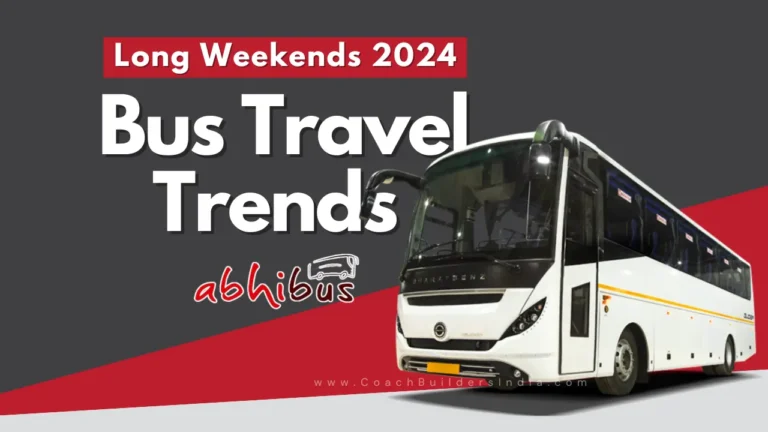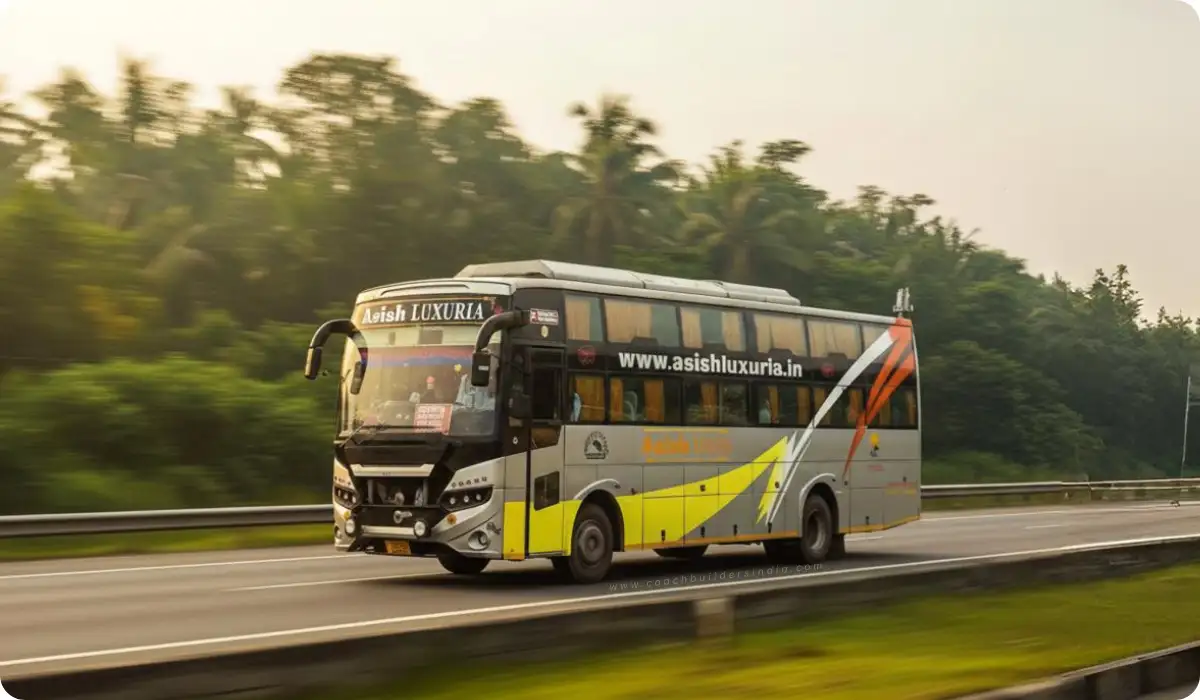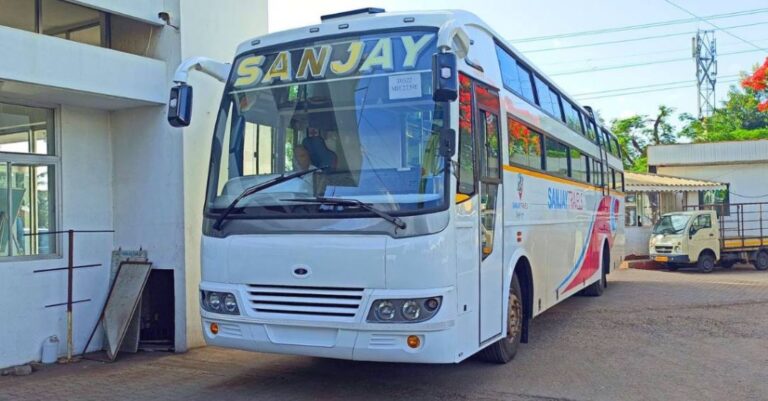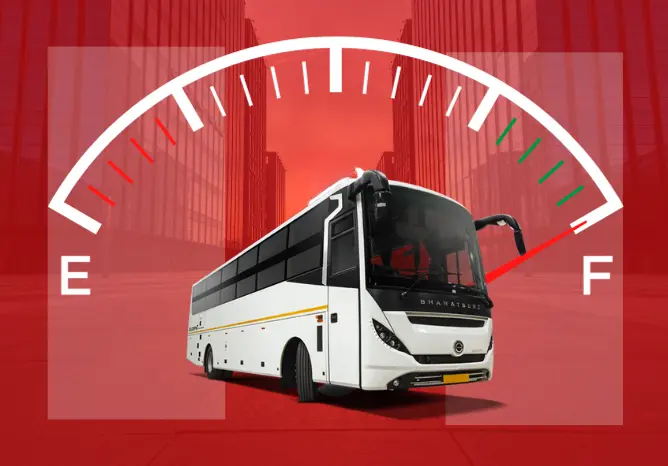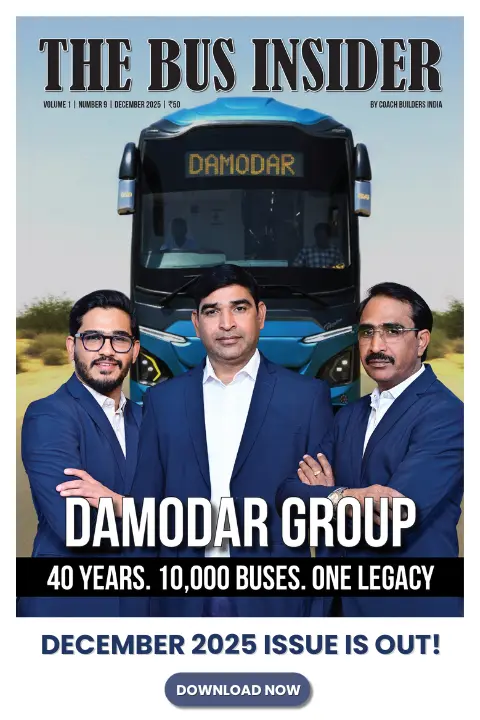Diwali Special: How Bus Operators Gear Up for India’s Festive Rush
As Diwali 2025 sparks a nationwide surge in intercity travel, we explore how India’s bus operators are ensuring meticulous fleet readiness while strengthening their focus on reliability and workforce wellbeing.
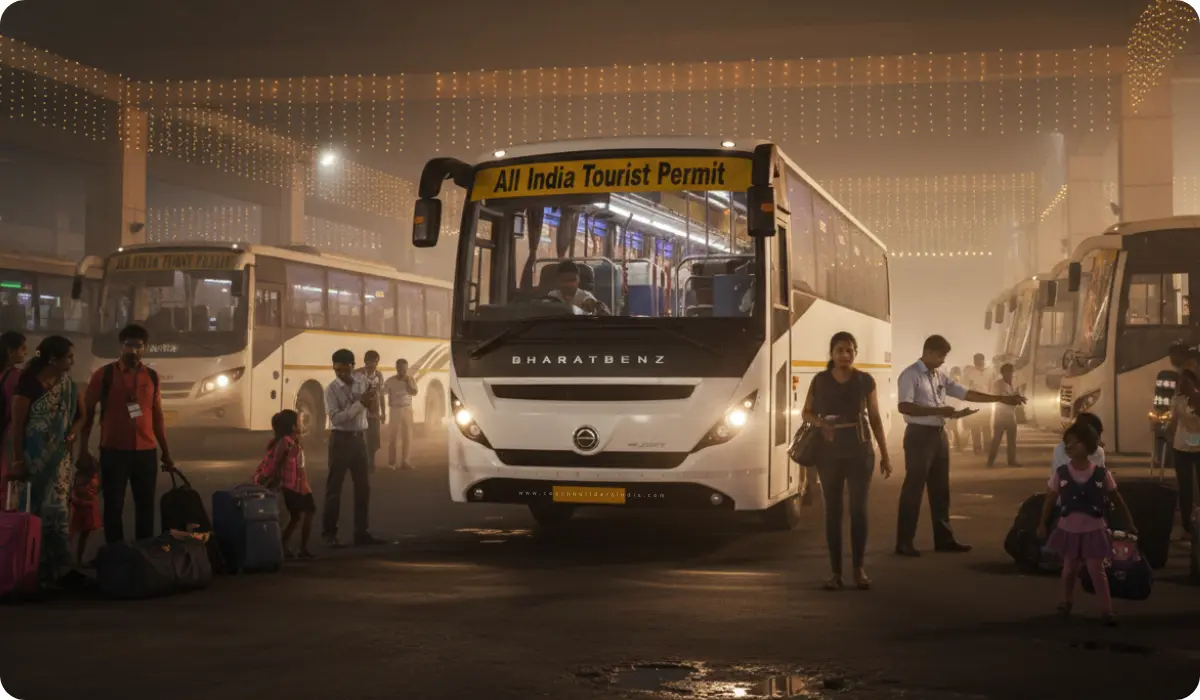
For India’s bus operators, Diwali is more than a festival! It’s a pivotal period that sets the tone for the months ahead. As highways swell with vehicles and passengers, operators brace for one of the most critical revenue-generating windows of the year.
From September through February, festive holidays, weddings, and cultural events create sustained demand, turning intercity bus operations into a finely tuned orchestration of fleet readiness, staff management, and passenger service.
This Diwali, industry insiders report rising optimism. Passenger bookings are already climbing, routes are seeing early surges, and operators are preparing fleets and crews with meticulous care.
Prakash Sangam, CEO of redBus, expects a 40 percent increase on average across India, while some regions indicate even higher growth.
Manish Rathi, CEO of InterCity SmartBus, notes that bookings have surged 35 percent compared to the same period in 2024, with advance reservations nearly double those of regular non-festive weeks.
Behind the scenes, the season tests operational resilience, pricing strategies, and service reliability, all while providing a vital snapshot of market growth, passenger trends, and the evolving dynamics of India’s intercity transport ecosystem.
Diwali, in many ways, is a celebration of the bus industry itself – a high-stakes, high-reward period reflecting both the growth and the challenges of intercity travel today.
“We approach the festive season with military-level prep. We audit every bus – mechanical health, tires, interiors, even AC calibration. Only those that clear our “ready for Diwali” checklist hit the road.”
Chintan Rathod, Managing Director, Nakoda Travels
Defining the Festive Season: A Multi-Month Surge
For India’s bus operators, the festive season is far more than a single holiday. It is an extended period of sustained demand that shapes operations, revenue, and planning across the country. By and large, the season begins around September and continues through January, covering major festivals such as Diwali, Christmas, New Year, and Sankranti.
While the start and end may vary slightly across regions, Diwali remains the undisputed peak for passenger movement.
“In Tamil Nadu, our festive season runs for about five to six months, from late August to February, covering major festivals like Diwali, Christmas, New Year, and Pongal. Diwali and Pongal are the busiest periods for passenger movement and revenue,” says Dr. A. Anbalagan, Managing Director of Alagappa Tours & Travels Pvt. Ltd. and President of the All Omni Bus Owners Association.
In Maharashtra as well, the festive rhythm starts earlier, immediately after Ganesh Chaturthi, and continues well into February.
“The festive rush for us kicks off right after Ganesh Chaturthi and stretches through Navratri, Diwali, Christmas, New Year, and Sankranti,” shares Chintan Rathod, Managing Director, Nakoda Travels.
Across regions, while the timing may shift slightly, the story is consistent – the festive season is a high-stakes, high-reward period that demands careful planning, operational readiness, and flawless execution from bus operators.
“We plan duty and rest schedules to prevent overwork and ensure adequate rest. Staff working through the festive days receive special incentives, and their families are given gifts as appreciation.”
Dr. A. Anbalagan, Managing Director of Alagappa Tours & Travels Pvt. Ltd.
MIC E-Mobility’s Sanjiv Sharma Shares Vision for India’s Luxury Sleeper Bus Segment
Diwali’s High-Stakes Window
For bus operators across India, Diwali isn’t just a festival – it’s the high-octane season that drives the bulk of annual revenue. Buses run full, passenger demand spikes, and every route becomes a key contributor to quarterly performance.
“The Diwali season brings a significant increase in revenue and passenger demand, which helps us strengthen and expand our platform for even greater reach in the future,” says Rohan Dewan, CEO & Co-founder, LeafyBus.
Across regions, operators report passenger surges of up to 40% percent. Strategic fare adjustments during this period amplify earnings, making Diwali the single largest revenue window of the year.
“The Diwali period is among the strongest phases for the mobility industry in India. We typically see a 30–40% jump in passenger movement compared to regular months. It directly impacts quarterly revenue and keeps our networks humming at full capacity,” notes Manoj Soni, CEO, YoloBus.
For some operators, the numbers are even more dramatic. Dharmasen Patil, Director of Sangitam Travels, points out that passenger movement nearly doubles during this period. “People travel home to celebrate with family or take short getaways. This season contributes a substantial share of our annual revenue,” he explains.
“Demand hasn’t picked up like last Diwali. There’s been some recent improvement, but most traffic is one-sided – outbound routes are busy, while return legs remain underfilled.”
Piyush Deshlahra, Partner, Payal Travels
Demand Surges But Regional Disparities Remain
.webp?updatedAt=1762264442993)
This year, the festive season has kicked off on a strong note, with early trends signalling one of the most robust periods for the intercity bus sector in recent years. Operators across key markets are reporting robust advance bookings, driven by rising passenger confidence and a clear shift toward organized, tech-enabled travel options.
Dharmasen Patil noted that the booking window has opened noticeably earlier this year.
“Compared to the same period last year, we’re seeing a stronger surge in demand. Passengers are showing greater confidence in road travel, and the convenience of online booking is prompting them to reserve seats well in advance. If this trend continues, we’re on track for one of our best Diwali seasons to date,” he said.
Manish Rathi, Co-founder and CEO of IntrCity SmartBus, confirmed similar momentum.
“We’ve recorded a 35% increase in bookings over the same time last year. With Diwali still a week away, we expect volumes to grow further as last-minute travel kicks in,” he observed, highlighting the sustained uptick in preference for branded intercity operators.
YoloBus is also seeing early traction. “Demand has picked up faster this year, and we’re projecting a 15–20% increase over last Diwali,” said Manoj Soni. “Advance bookings are strong across high-density corridors, which reflects continued customer trust in structured, reliable travel services.”
However, this festive surge hasn’t played out evenly across all regions. In markets like Chhattisgarh, demand has been far more subdued.
Piyush Deshlahra, Partner of Raipur-based Payal Travels, pointed to a noticeably restrained market this year. “We were expecting a stronger pickup, but demand hasn’t materialized the way it did last Diwali. There’s been a slight improvement in recent weeks, but much of the movement is one-sided – outbound routes are relatively active, but return legs are seeing weak fill rates,” he noted.
He attributed the soft sentiment to broader structural issues. “Market confidence here is low, and that’s definitely impacting travel decisions. Also, fleet expansion in recent years has far outpaced actual passenger growth in many corridors, leading to oversupply. That imbalance is now becoming more visible,” he explained.
Rishi Raj Phukan, Director of Assam-based Rishi India Transport, echoed similar tepid sentiments, noting that demand has been sluggish and the typical festive momentum has yet to materialize.
“The market has been unusually slow this year. Bookings are yet to pick up at the pace we usually see by this stage in the festive calendar,” he said. “We’re also observing significant asymmetry in traffic flows; certain routes are loaded in one direction, while return legs remain underutilized.”
This divergence underscores the varied pace of recovery across India’s mobility landscape. While high-traffic corridors are seeing strong gains, traditional and regional players in slower-growing markets continue to face headwinds.
“Demand has picked up faster this year, and we’re projecting a 15–20% increase over last Diwali. Advance bookings are strong across high-density corridors, which reflects continued customer trust in structured, reliable travel services.”
Manoj Soni, CEO, YoloBus
Behind the Scenes: Rigorous Prep and Real-Time Readiness
For operators, the Diwali season leaves little room for error. Packed buses, heightened passenger expectations, and long-distance routes mean that any breakdown or service disruption can ripple across operations. To stay ahead, operators are leaving nothing to chance.
“Every bus undergoes a comprehensive check, engine, tires, AC, electricals, interiors, weeks in advance. Our drivers are briefed and trained on fatigue management, passenger communication, and emergency protocols. Operationally, we deploy standby vehicles and backup drivers to handle unforeseen challenges. Our backend team monitors live tracking constantly to ensure any issue is resolved immediately,” explains Dharmasen Patil.
“We approach the festive season with military-level prep. A month in advance, we audit every bus – mechanical health, tires, suspension, interiors, even AC calibration. Only those that clear our “ready for Diwali” checklist hit the road. Technical and backup teams stay on 24×7 standby across key routes,” says Chintan Rathod.
For EV operators, technology provides an extra layer of preparedness. “We prepare by stocking critical spare parts, ensuring daily checks on all vehicles, and keeping technicians ready for any scenario. Since our buses are electric, full telematics allow us to track and analyse even minor issues before they become major breakdowns,” says Rohan Dewan.
Regional veteran Dr. A. Anbalagan adds, “Before the festive rush, all buses undergo thorough maintenance. Drivers and cleaners receive special training on rest, safety, and passenger care. During Diwali, a 24-hour support team is on standby to address emergencies promptly.”
In a high-stakes season where reliability is non-negotiable, preparation goes beyond routine maintenance – it’s about reinforcing passenger confidence and delivering flawless, uninterrupted service.
“We’ve recorded a 35% increase in bookings over the same time last year. With Diwali still a week away, we expect volumes to grow further as last-minute travel kicks in.”
Manish Rathi, Co-founder & CEO, IntrCity SmartBus
Prioritizing People as Much as Performance

During the festive rush, it’s not just the vehicles that demand meticulous upkeep – the human element is equally critical. The surge in passenger volumes places immense pressure on frontline staff, testing their stamina and morale. Industry veterans know that operational success hinges as much on a well-supported workforce as on a well-maintained fleet.
Dr. A. Anbalagan underscores this holistic approach: “We plan duty and rest schedules to prevent overwork and ensure adequate rest. Staff working through the festive days receive special incentives, and their families are given gifts as an appreciation. Our goal is to create a safe, comfortable environment that keeps staff motivated and committed during the busy season.”
Echoing these priorities, Dharmasen Patil highlights the value of engagement and morale – “Timely salary disbursement, pre-festive celebrations, structured rest rotations, and regular check-ins are fundamental to maintaining staff wellbeing. Our appreciation drives reinforce the critical role our teams play in facilitating millions of meaningful journeys each year.”
Collectively, these measures reflect a mature understanding within the industry – preparedness for peak travel seasons demands not only mechanical reliability but also a resilient, motivated workforce.
“The Diwali season brings a significant increase in revenue and passenger demand, which helps us strengthen and expand our platform for even greater reach in the future.”
Rohan Dewan, CEO & Co-founder, LeafyBus
The Industry’s Evolving Playbook
Diwali continues to be a defining moment for India’s intercity bus industry – not just as a revenue peak, but as a measure of resilience, readiness, and growth. This year’s demand has come in strong, with early booking surges and rising passenger confidence reflecting the sector’s growing appeal.
Yet, regional variations serve as a reality check – the festive wave is not uniform, and operators must remain agile to navigate localised slowdowns and asymmetrical traffic flows.
But what stands out is the industry’s evolving maturity. Operators are no longer just reacting to festive demand – they’re anticipating it. From pre-season fleet audits to driver welfare and passenger service, the focus has shifted to precision, preparation, and consistency.
The takeaway is clear – it is no longer just a high-pressure season, it’s a performance benchmark. Those who invest in planning, empower their people, and adopt smarter systems are setting new standards for reliability and scale.
And if the momentum continues, the festive season won’t just test operational strength – it will signal just how far the sector has come.
Catch the latest Bus Industry updates, Exclusive Interviews, Bus News, and International Bus News on Coach Builders India. Download the latest issue of the The Bus Insider magazine for more insights.

